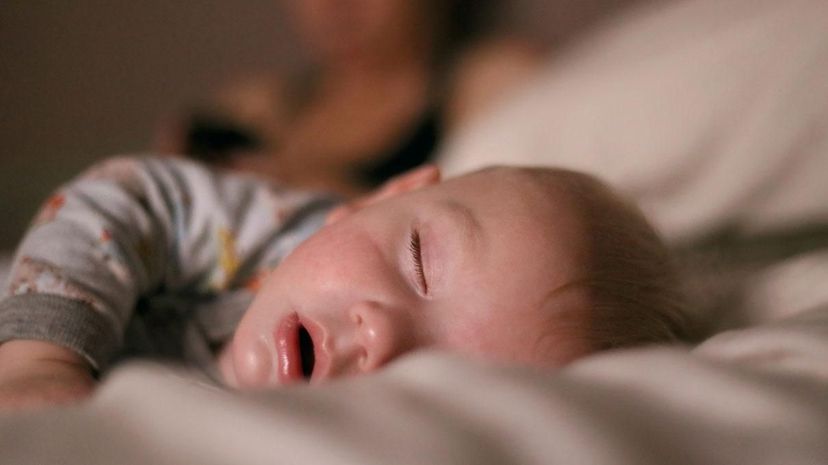 “FitBit for babies? Can tracking devices improve your baby’s health? Pola Damonte/Getty Images
“FitBit for babies? Can tracking devices improve your baby’s health? Pola Damonte/Getty Images
Taking a baby home from the hospital is one of the most glorious yet terrifying experiences of a parent’s life. So it’s no wonder that vital signs monitors for infants have popped up over the last few years. These are manufactured under brand names like Owlet, Baby Vida and MonBaby and are designed to work in tandem with smartphone apps to measure a baby’s bodily functions like pulse rate, blood oxygen saturation and respiration. The apps get their data straight from sensors built into baby paraphernalia, like diaper clips, onesies, socks and buttons.
Some scientists recently took a long, hard look at these monitoring devices to determine whether they were warranted. Their report was published in the Journal of the American Medical Association. "These devices are marketed aggressively to parents of healthy babies, promising peace of mind about their child’s cardiorespiratory health," says lead author and pediatrician Christopher P. Bonafide, of Children’s Hospital of Philadelphia, in a press release. "But there is no evidence that these consumer infant physiological monitors are life-saving or even accurate, and these products may cause unnecessary fear, uncertainty and self-doubt in parents."
Manufacturers have done a tap-dance of sorts around their claims to lure parents in without committing to too much. "Consumer infant physiologic monitor websites avoid direct statements that their products diagnose, treat, or prevent disease, yet their advertised role is to alert parents when something is wrong with their infants’ cardiorespiratory health," the researchers explain in their article.
The scientists warn that the effectiveness of these devices has not been studied and there is really no reason to monitor healthy infants like this. "Healthy infants have occasional oxygen desaturations [decreases] to less than 80% without consequence, and these monitors could increase the risk of overdiagnosis and potential harm if these innocuous events generate alarms," they write. This could mean unnecessary trips to the emergency room and needless medical tests. The monitors could have some value for premature babies at risk for breathing abnormalities, but their effectiveness would need to be demonstrated, note the scientists.
As is often the case with new classes of products, regulatory agencies haven’t yet caught up to this particular market, something the researchers would like to see change. "The makers of consumer infant physiologic monitors have avoided US Food and Drug Administration (FDA) medical device regulation by not making claims that the devices prevent SIDS," they note, adding, "One company reportedly intended to sell its products as medical devices and was planning to pursue FDA approval but later changed its mind reportedly because of the time and expense required."
Ideally, the researchers hope these devices show up on the FDA’s radar soon, and be categorized as "FDA device class II," which would require makers to show that their devices are safe and effective.
On its website, Owlet responded that its Smart Sock was in compliance with U.S. Consumer Product Safety Commission requirements. "We have conducted third-party accuracy studies that were submitted to the FDA as part of our recent 510(k) application, which review is pending for a medical version of the product," the company concluded.
Now That’s Interesting
To date, medical apps have not had a great track record, write the scientists in their JAMA report. They refer to a study on a blood pressure app which falsely told 80 percent of participants with hypertension their blood pressure was normal.


